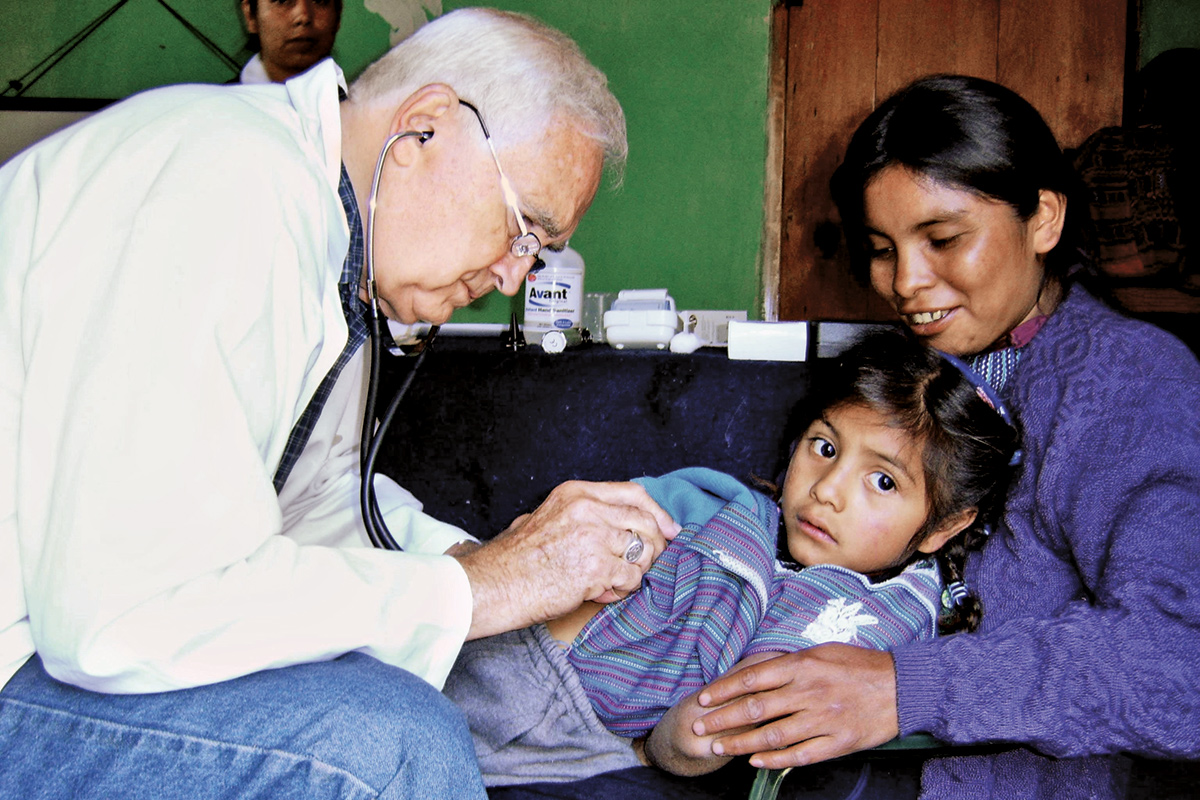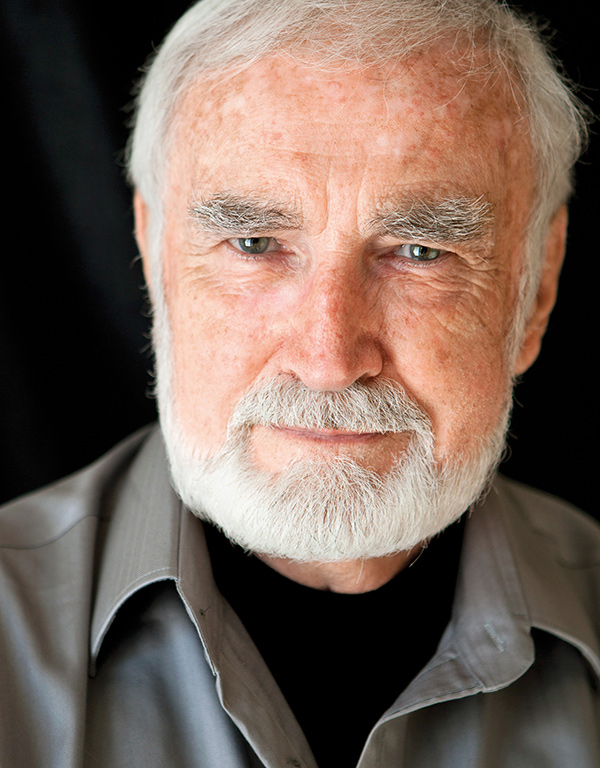From Rural Roots, Reaching around the World

Project Concern

Jeremy Jackson/Project Concern
As a child, James Turpin 49C 51T 55M remembers watching his grandfather, John Wesley Duke, tend to the medical and spiritual needs of his patients in the hills around his hometown of Hindman, Kentucky, and Troublesome Creek.
A devout Methodist, the physician would regularly ask his young protégé, “What are you going to be, Jimmy Turpin?”
“I would answer, ‘I am going to be a medical missionary in China,’ ” Turpin recalls. “He would ask, and I would give the same answer over and over. He would pop his buttons, he was so proud of that ambition.” But even Duke could not imagine the impact his young grandson would have on the lives of millions around the world. This year marks the fiftieth anniversary of Project Concern International (PCI), the San Diego–based health and humanitarian organization Turpin founded in 1961. The organization works to promote health and self-sufficiency in poverty-stricken populations by preventing disease, improving community health, and supporting sustainable development.
Turpin started the program exactly where he’d imagined—in China—on a sixty-two-foot barge turned into a modern floating clinic called the Yauh Oi (Brotherly Love) on Hong Kong harbor. Now the organization has programs in Africa, Asia, and the Americas; in 2009, PCI reached more than 5.5 million people.
Although his ambitions began with his grandfather’s influence, Turpin credits his Emory education for helping to fulfill them.
“Emory has meant so very much to me. I don’t live a day without sensing something I learned there,” Turpin says. “The phenomenal education I received and the exposure to such amazing faculty—as an undergraduate, at Candler, and at Emory School of Medicine—there is none better.”
But, Turpin says, the road was not always smooth.
“When I was a premedicine student, I unwittingly signed up for organic chemistry and I did not do well,” he says. “Dr. [Osbourne] Quayle was in charge of the chemistry department, and he strongly suggested that I transfer to theology.”
Disheartened, Turpin transferred to Candler School of Theology, a moment he calls pivotal in his life. “I went on to seminary and learned that so many things you think at the moment are tragedies turn out to be wonders and miracles,” he says.
After two years at Candler, Turpin was accepted to Emory’s School of Medicine. Graduating in 1955, he interned at Crawford Long Hospital, then performed a residency in family practice in Santa Rosa, California, and briefly practiced in Chickamauga before taking over a thriving medical practice in Coronado, California, from a retiring physician.
He also began volunteering with a medical clinic in Tijuana, Mexico.
“One night we had two kids dying with bronchopneumonia. With the help of volunteer nurses, we helped those kids survive the night. Leaving late that night, I felt ten feet tall. It was exhilarating,” he says. “Project Concern started for me that morning.”
Although he is retired from any official position with PCI—he has served as chairman of the board, medical director, and chief executive officer over the years—Turpin maintains close ties to the organization, and in April will travel with his wife, Wrenn, to Zambia, Botswana, and South Africa on a diplomatic mission for the group.
“Back in the hills of Kentucky, my Pawpaw Duke knew that working in such a needful place was something magical. He needed those people as much as they needed him,” Turpin says. “That has become a mantra of mine. When you are privileged to do this kind of work, it is as good for you as for the people you serve.”






